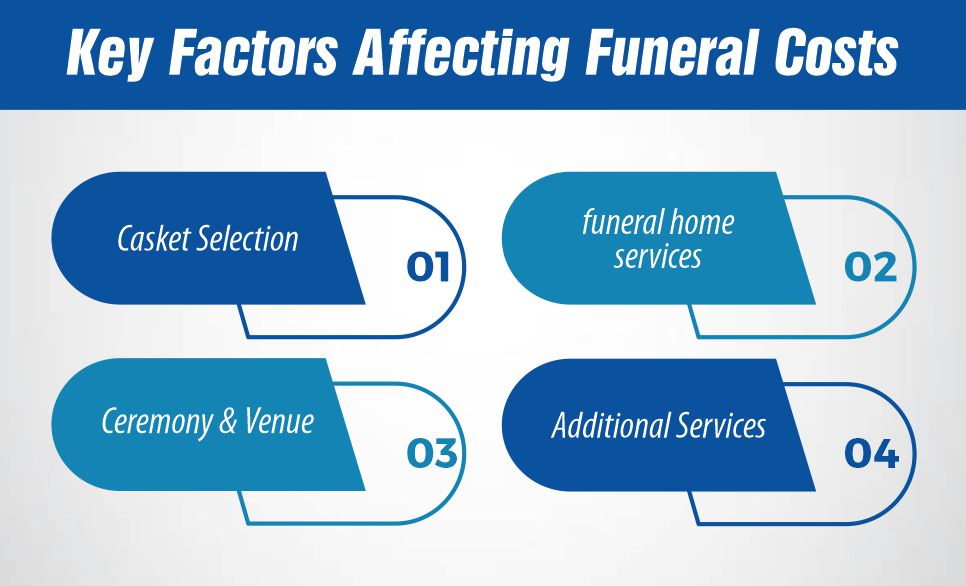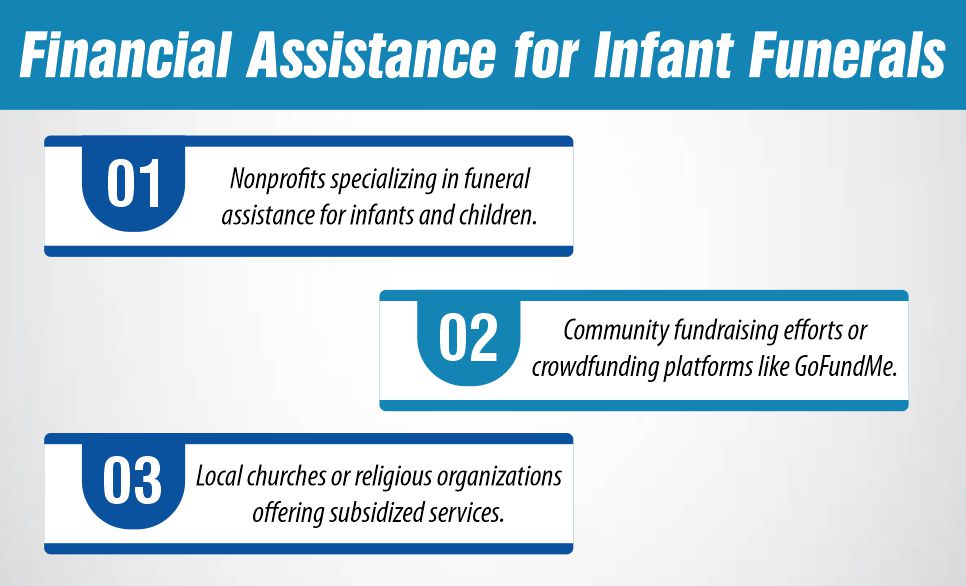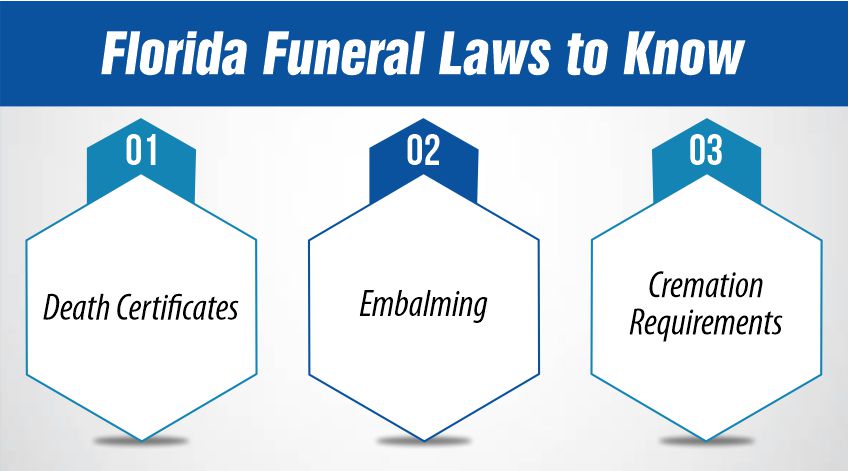Last Updated on: March 13, 2025
Reviewed by Kyle Wilson

Nowadays, funerals are not only a time of grief but also a time of decision-making for many expenditures. This aspect can be quite overwhelming for many families. How Much Does a Funeral Cost in Florida? The costs never seem to abate, and some understanding of these costs, especially if life insurance isn’t around, can aid families in better preparation. This guide will delve into the average funeral cost in Florida, introduce options such as cremation and burial, and talk about planning and saving on costs. These are elements that can help ensure your loved ones are not burdened financially.
Get Free Quotes
Customized Options Await
Funeral costs in Florida are highly flexible depending on the type of service selected and the person’s preferences. The average traditional burial costs between $7,000 and $12,000, while a cremation service costs between $5,000 to $7,000. These prices represent some sort of averages, and expenses may vary depending on the specific choices applied to the funeral home, type of casket, memorial service details, and additional selected services.
Traditional burial services may consist of several elements that can quickly increase the overall cost. Here’s a rough outline of various fees associated with a traditional burial in Florida:
Service | Average Cost |
Basic funeral services | between $7,000 and $12,000 |
Transfer to the funeral home | $350 |
Embalming | $775 |
Dressing and casketing | $275 |
Viewing (visitation) | $7,848 |
Funeral ceremony | $506 |
Hearse rental | $200 to $500 |
Casket (median-priced) | $2500 |
Utility vehicle | $350 |

This can explain the average funeral cost in Florida. If one is to have a good plan for financing end-of-life services, one should find out the average cost of a Florida funeral. Those who may want cheaper ways can opt for cremation or minimal burial processes.
An infant funeral is, without a doubt, an emotionally challenging experience for parents who wish to focus only on honoring their child; however, financial considerations can make things even worse. In Florida, it would cost between $2,000 and $4,000 on average, depending on the services a family decides to obtain. A traditional burial would cost more than cremation, though both include the cost of basic services, a casket or urn, and the funeral home’s professional fees.
Recognizing the financial burden of infant funerals, several organizations and charities in Florida provide support to families who may not have the resources to manage these expenses. Examples include:

Such a burden, funeral costs can be overwhelming, but proper planning will ensure that families stay focused on honoring their loved ones rather than stressing over expenses. Here are some practical steps to prepare for and manage funeral costs in Florida:
Use a funeral costs calculator to get a detailed estimate based on the services and products you select, such as caskets, embalming, cremation, and ceremony fees. This tool helps you:
Deciding between burial, cremation, or direct cremation significantly affects costs. Here’s a comparison:
Direct cremation: The least expensive option, omitting unnecessary services.
Many Florida funeral homes offer pre-need plans which enable families to:
Document preferences in advance, relieving loved ones of decision-making pressure.
There are ways to bring funeral costs down the line, but still make it meaningful:
Other than family planning, the cost can be reduced further with the help of financial assistance programs or burial insurance policies. With careful planning and some support from the community, families in Florida can ensure their infant is honored with dignity and love without producing undue financial strain.
Managing funeral costs is one of the biggest challenges, especially to families who were not prepared with some amount of money or the deceased lacked life insurance. However, several strategies and resources can help reduce the cost of Florida funerals.
A very good way to cover the costs of funeral and burial is through taking up a life insurance policy: it pays for a lump sum to the beneficiaries. However, one must bear in mind that it takes at least weeks before the payout can be made. Furthermore, not all life insurance policies cover final expenses and therefore are an inappropriate basis to rely on solely for funeral and burial needs, since one needs to ensure that the policy specifically covers such costs.
Burial insurance also goes under the name of final expense insurance and is intended to pay for the funeral. Its key benefits are also seen in the fast payout – generally, much faster than with regular life insurance policies, and most burial insurance policies do not require medical examinations, making them accessible to those with health conditions. This makes burial insurance particularly good for seniors or individuals who would not otherwise qualify for traditional life insurance.
With a Payable-on-Death (POD) account, funds are paid directly to a designated beneficiary upon death and offer some very good benefits. One of the largest benefits is access to funds, as beneficiaries can access these funds without interference or a lengthy probate process. Funds in a POD account are also flexible and may be applied to any expense and also, to any funeral expenses at the time of death, reducing worry about financial burdens.
Prepaid funeral plans are useful plans that involve paying for funerals in advance. Such payment offers convenience and possibly even helps save money. The main advantage is locking in your rates at today’s cost, which may prevent increasing funeral prices over time. However, there are risks involved, such as the stability of the funeral home you choose. In case the business closes the shop, the prepaid funds could be at risk. A funeral service provider must, therefore, be a credible and financially viable company.
A specific savings account for funeral-related expenses is another useful way to plan for out-of-pocket expenses. Its strongest advantage is that the money can be made available anytime, with no restrictions on withdrawal; it’s not like insurance with premiums to manage over time. But to increase trust and ensure money is used for its intended purposes, families can set up joint accounts or designate a trusted individual to manage the funds, thereby providing even more peace of mind.
Numerous programs and charities are offering funeral financial assistance, mostly targeting low-income families in Florida. Death Benefits paid out by the Social Security system help beneficiaries who are eligible pay for funeral services. Alternatively, nonprofit organizations such as The Children’s Burial Assistance and various other local charities assist low-income families. In addition, some counties have aid programs in place that offer financial support for poor burials and cremations to prevent anyone from being unable to provide such an honor.
Compare the prices and service options among several funeral homes to find cheaper means of managing funeral costs in Florida. Direct cremation will also assist; it is usually the cheapest option. Services can be made less expensive by being smaller, having private functions, and keeping out extras that are typically placed on the account for premium caskets and expensive floral arrangements. Careful planning and the knowledge of available resources will help families cover funeral costs without compromising the dignity of the deceased.
Planning a funeral is both emotionally challenging and costly, but there is a way out – having funeral expenses reduced without the loss of dignity in the sending-off process. Here are some practical tips on the saving of funeral costs in Florida, presented in much detail as well as key points for easy reference.
A cremation is less expensive than a traditional burial, as the funeral does not require a burial plot, vault, or pricey casket. This greatly reduces the costs of the overall funeral service. Also, cremation allows the flexibility of holding the memorial service at a later date, often simpler and less expensive. The process of cremation, with its associated expense, is both less expensive, thereby allowing families many choices to honor their loved ones without financial restraint.
Caskets rank top among the costliest items in funerals. Then again, there are ways to bring these costs down. In cremation, any reinforced cardboard or the most rudimentary wooden containers would do. For burial, simple pine or composite wood caskets would work. Another way that families can save is by buying a casket from a third-party provider since the law under the Funeral Rule mandates that funeral homes accept caskets purchased elsewhere. Therefore, while offering the flexibility to shop for more affordable casket options to families, this still ensures that the service is attended dignifiedly.
Meaningful but often pricey – optional services can add a considerable amount of dollars to the final funeral expense. Those wishing to save money might forego the practice of embalming, except where it is legally mandated, as well as large, expensive flower arrangements. Fewer participants and simpler, private ceremonies are both cheaper. Do-it-yourself options for decorations or funeral programs such as homemade artwork also save money and can be a creative way to ensure personality does not take a back seat.
As there is a great deal of variation among funeral service providers, it is essential to compare prices from several funeral homes to determine what would be within budget. In any event, funeral homes are regulated by state and federal law to provide an itemized price list if requested, which makes it easier to compare costs and eliminate unnecessary charges. Make sure to ask for and closely read these lists so you do not pay for services you do not want to incur. You can also use the Funeral Rule in your negotiation for services to make sure you get the best value for money spent.
You can engage your families, friends, or even members of the community who wish to give both emotional and financial support in such a difficult situation by setting up a crowdfunding campaign with the help of crowdfunding platforms like GoFundMe. Sometimes, sharing the story of your loved one and the financial need can resonate with others and encourage contributions. The funds raised can be used to cover unexpected or urgent funeral costs, providing relief when needed most.

Understanding Florida’s funeral laws can help families make informed decisions and avoid unnecessary expenses:
A death certificate should be submitted within five days after the death of a person. This paper is significant in several legal formalities, insurance applications, and other bureaucratic procedures. Families should be very specific about how many certified copies they require since too much of an order means too much-wasted money. Certified copies of a death certificate generally range from $5 to $10 per copy, so they should only order what they need to save extra copies.
To avoid an undue requirement, in Florida, only if the body will not be buried or cremated within 24 hours, there is a law that mandates embalming. Refrigeration is more reasonably priced for short-term preservation as opposed to embalming, which costs much more, usually in the neighborhood of $500 to $800. However, refrigeration costs range from $50 to $100 per day. Given a reasonable time frame, this will give families a cost-effective option when considering burial or cremation.
A 48-hour waiting time is required by Florida law before the cremation. While a casket is not required, families can still use a rigid container during the cremation process. Containers for this purpose are considerably less expensive than a traditional casket and reduce the overall expense of cremation even further. In doing so, the flexibility allows families to select more economical options without violating the law.
Funeral and burial costs usually fall to the family when a loved one dies without life insurance. Such responsibilities can be overwhelming, especially when most funerals cost from several thousand dollars upwards. A family will have little choice but to seek alternative solutions if no coverage is in existence. Here are some options:
Probably, the easiest solution to provide an immediate means of covering funeral costs is through paying out of pocket. Families might look into personal savings accounts, rely on credit cards, or seek financial contributions from other family members. This solution solves the problem right away but will likely take a financial toll, especially if savings are short or if credit card debt can pile up.
Families taking this route should, therefore, identify cost-effective services and must abstain from splurging on unnecessary extras.
If there is no life insurance, a funeral loan may be available to families. These are called funeral loans, which are usually due for payment by a bank, credit union, or other specialized lender.
This option is most suitable for families confident in their ability to repay the loan promptly, avoiding long-term debt.
Charities and other non-profit organizations may be able to save families‘ skins regarding funeral costs. They grant awards; and provide financial assistance or services at lowered rates mainly to low-income families or the funerals of children.
While charitable assistance can help to relieve much of the financial burden, families may need to seek out many organizations and apply for help well in advance of the events themselves.
Planning for the funeral costs in Florida can relieve your family’s financial burden. You can think clearly about options like cremation, burial insurance, and pre-need plans to ensure a dignified sendoff without unnecessary stress on your loved ones’ part if you’re planning, or managing unexpected expenses. Understanding how much funeral services in Florida will cost you will get you through this hard time.
Many organizations, either local charities or churches, will provide some financial assistance. Some government programs also offer funds for families that are ailing.
Generally, it is because far fewer services are involved and you do not need to buy an interment plot.
Some examples could include obituary fees, transportation charges and cemetery upkeep.
Florida Statute determines responsibility first to the estate of the deceased, and if there is insufficient money to pay funeral costs, to the next of kin in this order:
Resources
Senior Writer & Licensed Life Insurance Agent
Iqra is a dynamic and insightful senior writer with a passion for life insurance and financial planning. With over 8 years of hands-on experience in the insurance industry, Iqra has earned a reputation for delivering clear, actionable advice that empowers individuals to make informed decisions about their financial future. At Burial Senior Insurance, she not only excels as a licensed insurance agent but also as a trusted guide who has successfully advised over +1500 clients, helping them navigate the often complex world of life insurance and annuities. Her articles have been featured in top-tier financial publications, making her a respected voice in the industry.

Burial Senior Insurance provides information and services related to burial insurance for senior citizens, including policy options and end-of-life support services.
Copyright © Burial Senior Insurance 2025. All Right Reserved.

Get Free Life Insurance Quotes